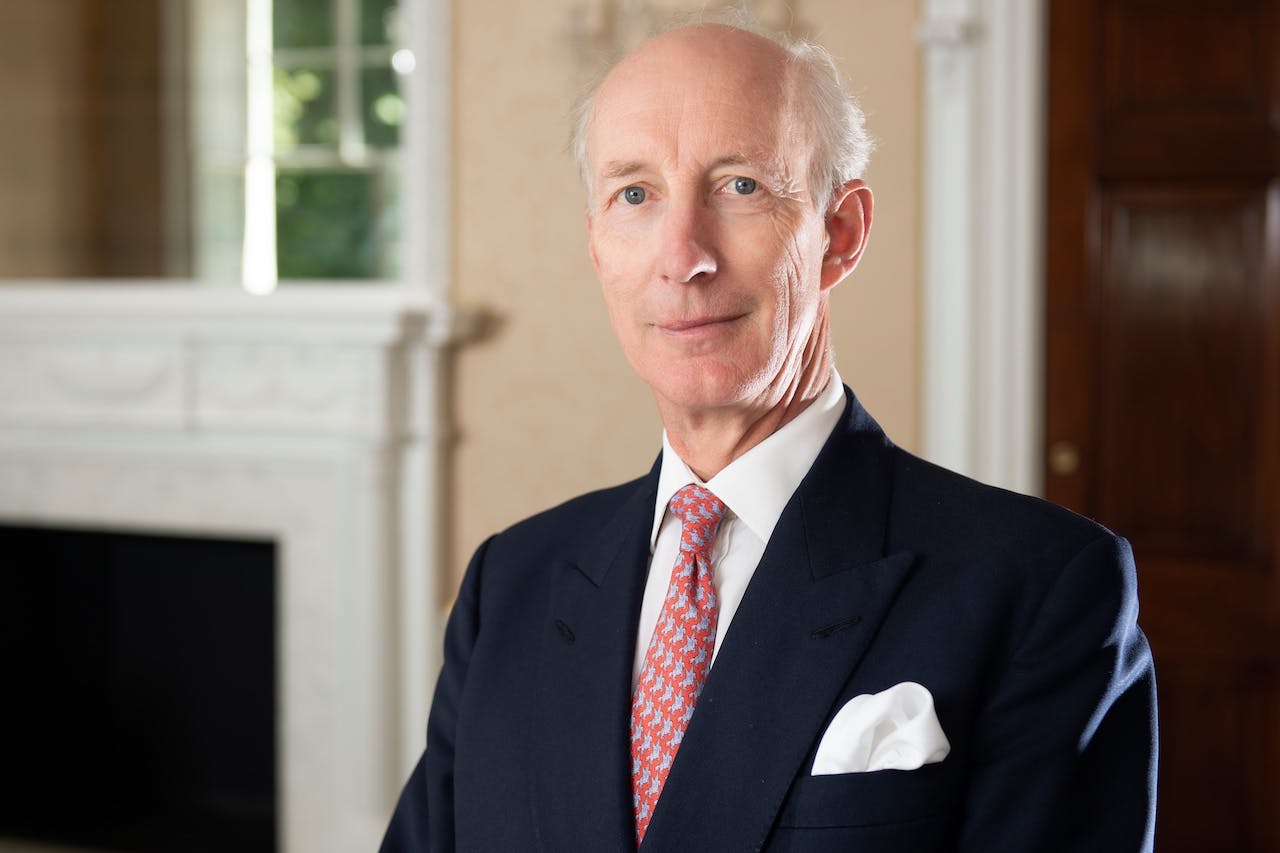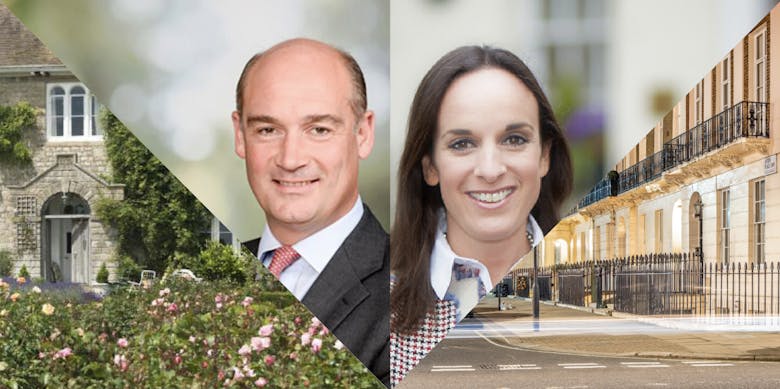The pandemic and a year of frenzied property market conditions have “transformed the way buying agents are seen”, says Jonathan Hopper, who runs one of the UK’s most established property search agencies. Employing a buying agent is “becoming the norm for savvy buyers,” says Jonathan Harington of Haringtons, as the sector moves further into the mainstream.
With insights from Property Vision, Thea Carroll, Garrington, Haringtons, Prime Purchase and Stacks, we explore how buying agencies have adapted and thrived through turbulent times…

Increased demand for buying agency services
“The pandemic has unleashed a wave of demand for our services,” declares Jonathan Hopper, Managing Director of national buying agency Garrington. His team has been busier over the past 18 months than at any time in the company’s 25-year history.
“The booming property market, and the intensity of competition among buyers, has seemingly transformed the way buying agents are seen,” says Hopper. “Once regarded as the exclusive preserve of the wealthy, an increasing number of more mainstream buyers now view the help of a buying agent as an essential edge, with an evolving appreciation that buying agents are an investment, rather than just a cost.”
“Something that was seen as a luxury before has become essential”
Jonathan Harington
Jonathan Harington, Director of Haringtons, agrees: “Travel restrictions, lack of supply, higher numbers of independent agencies and an increased focus on ‘the home’ as a result of the pandemic has created an aggressive marketplace, one not easily navigated by an individual purchaser,” he says. “This has led to a buying agent becoming the norm for savvy buyers – something that was seen as a luxury before has become essential. There are of course cost implications with receiving this market leading advice, however in the current market conditions the room for error expands and the opportunity cost is far greater.”
The normalisation of buyer representation means that buying agents are no longer the preserve of the very wealthiest. “We’re helping a wider range of buyers than ever before,” says Hopper. “In the past, most of our clients would be looking for a home in the top 10% of their chosen market. Now we’re regularly looking at homes in the upper quartile of the market.

Many of the top buying agents are unable to service the surge in demand. “Buyers who have been trying and failing to find or secure a property are concluding that they need professional help, but they’re late arrivals at the buying agent party,” says Rachel Johnston of Stacks Property Search. “Many don’t have availability for six months or more and are offering buyers a spot on a waiting list.” Her colleague in Cornwall, Clare Coode adds that she has closed waiting lists; “if you want a second home in Rock or Padstow you’ll struggle to secure a good buying agent this year or next, or perhaps even the year after that,” she warns.
“We had to turn away a lot of potential clients at the beginning of the year”
“We only act for a small number of clients,” says Harington, because we absolutely won’t have two looking for a similar property, conflicts are unethical, so we had to turn away a lot of potential clients at the beginning of the year.”
Savills’ buying arm Prime Purchase has also seen a “a huge increase in demand” since the start of the pandemic, although boss Charlie Wells notes that “we have to be careful as to which buyers to act for”.
As demand has blossomed, more people are trying their hand at being a buying agent. Jonathan Harington has seen an “astonishing increase” in the number of buying agents since he switched from the selling side 35 years ago. And things have accelerated in recent years. “The buying agency concept has been increasing in popularity, particularly over the past five years,” notes Harington’s colleague in London, Plum Fenton. “It is impossible to know every shade of London’s property market unless you live and breathe it. A number of buying agents are white-labelled by larger agencies and some even act as selling agents. I think there will be a drive to totally independent advisors as purchasers seek true transparency, something hard to come by in such a dynamic market place.”

Jonathan Hopper agrees, noting that on-the-ground local experience is essential for success. “The days of a buying agent operating client searches covering vast swathes of the country look numbered,” he says. “Discerning clients want true local knowledge, contacts and expertise.”
winning new clients
Word of mouth has always been the main source of new clients for top buying agents, with Property Vision’s Senior Partner Philip Harvey telling us that 97% of the firm’s transacted clients coming from word-of-mouth referrals over the last three years. This is still the case for most buying agents, but the ubiquity of social media combined with a broadening of demand for property search services means that many are adapting.
“The majority of our business to date has been through word of mouth,” says Jonathan Harington; “the pandemic has changed this, and we are seeing more online referrals than ever.” As a result of this shift, the 35-year-old firm has just revamped its website and brand identity to promote its offering in London and the country.
“There is no doubt that social media has become increasingly important not only for leads but keeping track of the ever-expanding number of agents and introducers circulating London’s property market,” says Harington. “However, the main power of social media is the ability to maintain communication with your audience and keep your service at front of mind.”
“Word of mouth from happy former clients – and repeat business – are a key component” of winning new business, says Hopper, “but we’re also active on social media and have formed strong partnerships with a number of financial institutions and other companies catering to the HNW community.”
Which services to clients value most?
Buying agents promise their clients an edge in a range of different aspects of the property market, from zeroing-in on what the client really wants from their new home, to tracking down hard-to-find prospects and negotiating the best possible price, and from the leg-work of viewings to providing valuable local insights.
Most agents tend to emphasise the search aspect first-and-foremost. That’s clearly vital, but many clients end up valuing other services just as much, if not more, by the end of the process.

“Buying agency is very different now to when we were at the forefront of creating the industry nearly 40 years ago,” says Property Vision’s Philip Harvey. “Most people think it’s just about finding houses, and for lots in the industry that’s all it will ever be. But for a few of us it’s about providing intelligent, insightful and value-adding advice rooted in relevant experience, which creates long lasting and mutually beneficial relationships and opportunities.”
In the current market, with its chronic shortage of homes for sale, a promise of access to a wider range of option is proving quite the draw. “Access to off-market properties is, more than ever, a trump card for buying agents right now,” says Garrington’s Jonathan Hopper. “Whilst some properties will inevitably be launched with full marketing and sold by competitive bidding, we are seeing more sales agents adopting off-market sales strategies and ‘cherry picking’ buyers, rather than overwhelming their clients and staff with high levels of enquires generated through the portals.”

Hopper says that off-market sales “have almost become the norm for many of the most desirable properties,” as vendors are reluctant to invite too many people into their home on viewings. “For many buyers, a good buying agent is the only way to unlock this fast-growing, but hidden, market,” he says.

“Unrepresented property hunters are only seeing a snippet of what’s available,” says Louise Ridings of Stacks Property Search. “Frustratingly for buyers, properties are appearing on estate agents’ websites and property portals once they’ve exchanged as a demonstration of success for the agent rather than a selling exercise.”
Beyond opening doors to the off-market, many buyers really value a trusted hand to hold, someone experienced on their side to guide them and advise. “Clients come to us looking for a house but leave us and refer us to their friends because of the value we have added in advising them what not to buy, and negotiating the best price and terms of the homes that are best suited to them,” says Philip Harvey.
The pandemic “has compounded the lack of clarity and predictability in the market”
Thea Carroll
“Property is a politicised, popular and highly prevalent topic in every day life, which has many people falling into the trap of thinking they’re experts,” adds Thea Carroll, who started her agency in 2019. “The one thing the pandemic has done, is that it has compounded the lack of clarity and predictability in the market. It has left most with a feeling of unease when asset classes behave counter-intuitively to the events stimulating global affairs. As such, there’s been been an uptick in people, clients included, openly saying, ‘I have no idea where this is going, I’d really like your advice on x’.”

“Buyers come to buying agents to help with the heavy lifting,” summarises Jonathan Harington. “When you pitch to a client the focus is on the search.” But “in hindsight once a purchase is complete, the value is often placed on the negotiation and the advice throughout the legal progression”.
“The elements of our service that clients value the most have remained consistent,” says Charlie Wells of Prime Purchase; “it is all about access, advice, ability and track record”. But some things have shifted in the last 18 month: “The business of buying agency is changing in that travel restrictions make it more challenging for clients to view houses within short timeframes,” he explains. “So we are turning to all sorts of video, FaceTime, and other media in order to provide insight into properties. However, that advice can only be taken seriously by buyers if they trust you or you have a proven longstanding track record for being an adviser, rather than someone just trying to sell. Trust is fundamental; I bought for clients from overseas during lockdown who couldn’t get here and never viewed the property in person before they bought it. They were longstanding clients who trusted my recommendation.”
What are clients searching for?
The “race for space” has been a staple of the property pages since the early days of the pandemic, with affluent house-hunters demanding bigger homes with more outside areas and scope for home-working and/or schooling.

“We have seen a large focus on outside space, and this is heightened in every summer market – with the return to the office this may normalise slightly,” says Plum Fenton, London specialist at Haringtons. “However, I do believe the pandemic and various lockdowns have irreversibly changed how people view their home, it is no longer a facility but needs to accommodate all factors of our day-to-day life.”
Charlie Wells agrees that the renewed focus on outside space and privacy will endure. “Buyers want room to stretch their legs – both at home and in their surrounding area – and the ability to do what they want to do,” he says. “We believe this will 100 per cent continue after the pandemic; now we have discovered the importance of these things, we value them more than ever.”
“Too many have bought ill-advisedly and may live to regret buying in haste”
Philip Harvey
Property Vision has noted similar trends, with clients putting greater emphases on peace, space, good communities, and walking routes with nature on the doorstep – but boss Philip Harvey thinks that “compromise has been the biggest trend” for buyers over the last 18 months. “Too many have bought ill-advisedly and may live to regret buying in haste,” he warns.
More Londoners than ever are moving out of the capital, and many movers are picking locations that they are not all that familiar with “Unshackled from the need to live within commuting distance of the office, many professionals are ready and willing to decamp right across the country – in search of more space and a better standard of living,” says Jonathan Hopper. “Buying agents can be particularly helpful for those moving to terra incognita where they don’t have friends or family to give them tips and suggestions.”
A severe shortage of builders and building materials, combined with reticence to have too many people in one’s home, means that more buyers are shying away from renovation project properties. “Property buyers looking to take on renovation projects should be aware of the difficulties in this sector, and proceed with caution”, James Law of Stacks wrote in PrimeResi last month. “Interest in properties requiring work has waned as many buyers want a turnkey home that will allow them to move in and get on with life straight away,” adds Jonathan Hopper, “rather than having the delayed gratification of adding and extending.”
Property Vision, meanwhile, has flagged “a huge move away from listed buildings,” explaining that “the obligations and restrictions really scare people.”
There’s also a trend towards a more holistic view of property ownership – or at least of clients looking for buying advice that takes a wider view than the immediate search brief. “There hasn’t been one occasion since the pandemic that a client hasn’t wanted us to consult on their portfolio globally as part of the London acquisition,” says Thea Carroll. “The world has never been so silo’d by means of travel, yet clients have never taken such a holistic view about what they want to achieve out of their holdings, both in terms of capital but also, enjoyment.”


